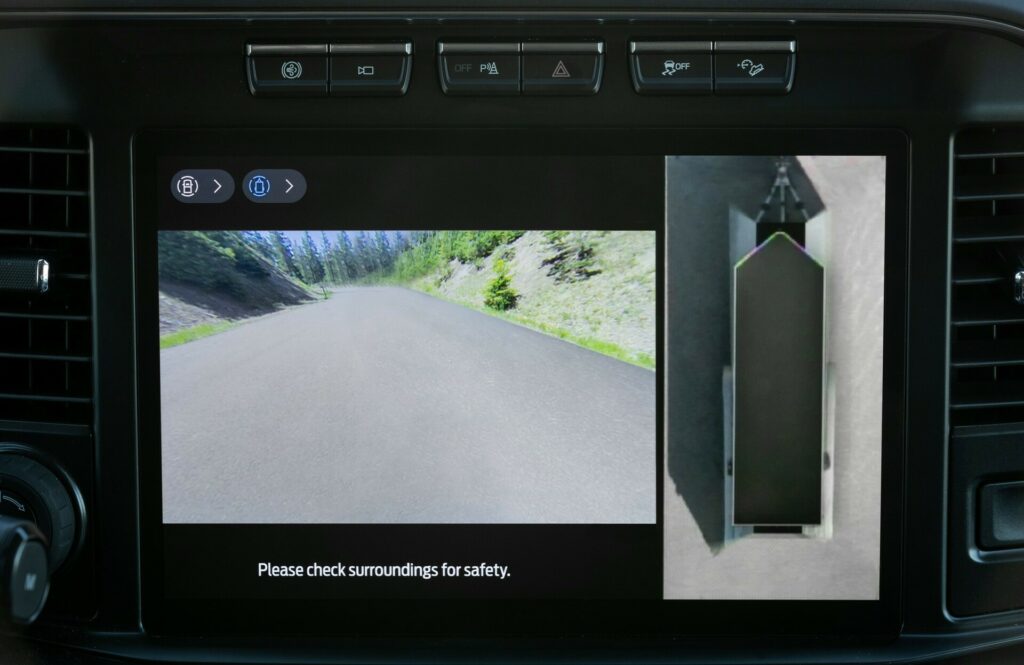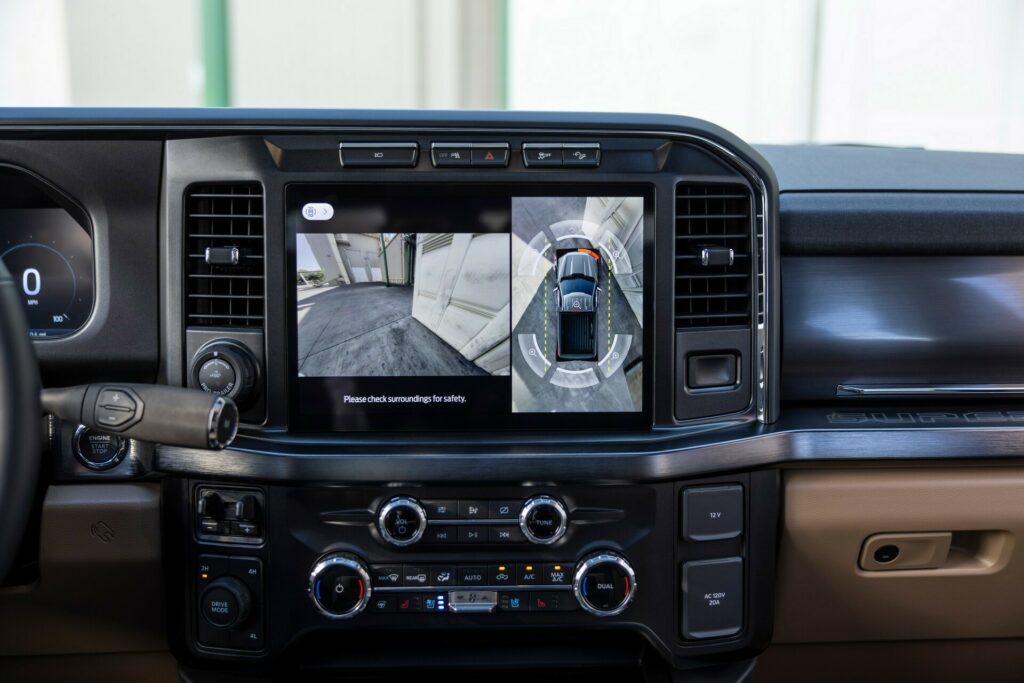- Ford and the NHTSA have agreed to a consent order that will see the automaker slapped with a $165 million civil penalty.
- That’s the second largest penalty in NHTSA history and is only beaten by fees related to the Takata air bag disaster.
- The government went after the automaker for a rearview camera recall that spanned years and included over 600,000 vehicles.
The National Highway Traffic Safety Administration (NHTSA) has hit Ford with their second-largest civil penalty for a drawn-out recall as well as failing to “provide accurate and complete recall information.” As part of a consent order, the automaker is on the hook for up to $165 million and will be subject to third-party monitoring.
While there’s a lot to unpack, the origins of the case date back to September of 2020. At the time, a recall was issued for 620,246 Ford and Lincoln vehicles due to “insufficient electrical conductivity” within a printed circuit board that caused intermittent rearview camera operation. This meant the vehicles didn’t comply with Federal Motor Vehicle Safety Standards.
More: Ford Issues Recall For Bad Backup Camera Linked To 17 Crashes
Roughly a year later, the NHTSA opened a recall query to investigate the timeliness and scope of the rearview camera recall as well as Ford’s compliance with reporting requirements. Several months later, in April of 2022, Ford expanded the recall and did so again in March of this year.
Needless to say, a recall starting in 2020 and continuing into 2024 isn’t good. The NHTSA claimed Ford “violated multiple provisions of the Safety Act and regulations thereunder” including failing to conduct a timely recall, providing inaccurate or incomplete information, and failing to submit timely recall reports – among other things.
Ford disagreed with the allegations, but agreed to the consent order to “administratively resolve these issues.” While the order itself spans approximately 20 pages, the provisions are multifaceted and designed to improve Ford’s compliance with the law.

The order spans a minimum of three years and requires the automaker to build a “multi-modal imaging test lab that focuses on low-voltage electronics.” The company will also have to invest in a vehicle identification number-based traceability system to track components at the VIN level.
On top of that, Ford will have to review the past three years of recalls to ensure nothing slipped through the cracks. The automaker will also be tasked with reviewing their recall decision-making process, increasing the speed of recall decisions, improving information sharing, and developing or updating policies and procedures related to Vehicle Safety Act compliance.
Ford will have to “develop and implement safety data analytics infrastructure as well as an end-to-end information and document interface platform with all relevant information for internal and NHTSA-initiated safety investigations.” The aforementioned third-party will also be watching over their shoulder to make recommendations and ensure the automaker is complying with the consent order, federal regulations, and the Vehicle Safety Act.
NHTSA Deputy Administrator Sophie Shulman said, “Timely and accurate recalls are critical to keeping everyone safe on our roads. When manufacturers fail to prioritize the safety of the American public and meet their obligations under federal law, NHTSA will hold them accountable.”





